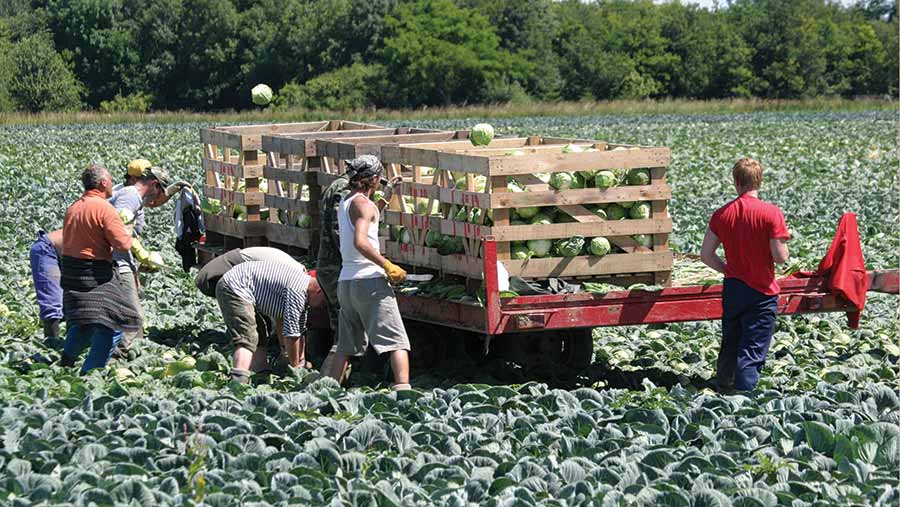Migrant worker scheme falls short, say farm leaders
 © Tim Scrivener
© Tim Scrivener A visa scheme that will allow 2,500 migrant farmworkers into the UK after Brexit falls short of requirements, say industry leaders.
The two-year pilot scheme will allow non-EU migrant workers to work on UK farms for up to six months during peak times of the year before returing home.
See also: Visa scheme announced for migrant farm workers
The NFU has welcomed the announcement of the scheme, which follows a lengthy campaign and warnings that a shortage of workers is hampering food production.
NFU president Minette Batterrs said: “Farmers and growers have seen worker availability tighten significantly in recent years, with the shortfall to July this year reaching 10%.
“Growers will take great confidence in knowing that the government is listening during what have been extremely testing and uncertain times for the sector.”
More workers required
But other farming organisations said the scheme did not go far enough – with only 2,500 workers coming into the UK and some 80,000 workers required.
Country Land and Business Association president Tim Breitmeyer said he was pleased the government was finally showing signs of taking action to ease the labour shortage.
But he warned: “This pilot must only be a starting point, and only scratches the surface.
“It will allow for just 2,500 seasonal workers, while the number of seasonal and permanent migrant workers currently employed by rural businesses across the UK is far greater.”
Broader solution needed
Mr Breitmeyer said a much broader solution was needed to address concerns about availability of labour after Brexit across the rural economy.
This included seasonal farmworkers but also longer-term professionals and managers in agriculture and other rural sectors such as tourism, food processing and the veterinary profession.
The British Growers Association said the pilot scheme fell “well short of the numbers of labourers required” to sustain the fresh produce industry in Britain.
British Growers chief executive Jack Ward said the British fresh produce sector needed 75,000-80,000 seasonal workers – a number expected to rise to 85,000-90,000 by 2020.
“The government has been made aware of this figure in our discussions,” said Mr Ward.
Step in right direction
“This announcement is a step in the right direction, but the scale of the current shortfall in seasonal labour far exceeds the numbers involved in this latest scheme,” he said.
Mr Ward said it was important that UK growers had access to seasonal labour 12 months of the year to cover the spread of crops grown in the UK.
“Without access to an adequate supply of seasonal workers there is a danger we could be facing a real threat to the UK’s capacity to produce crops of fresh fruit and vegetables. Farms are already reporting staff shortages.
“We welcome the fact that the government is addressing this issue, but the scheme needs to develop if we are to have a sustainable, successful fresh produce industry post Brexit.”
Too little too late
James Somerville-Meikle, of the Countryside Alliance, said: “Unfortunately, what the government has produced will be too little too late for many sectors of the rural economy.”
It was disappointing that the new scheme would be limited to fruit and vegetable farmers – which meant sectors such as forestry and game farming will not benefit.
The 2,500 workers allowed into the UK under the scheme scheme provided little reassurance when UK farmers and producers employed some 80,000 seasonal workers annually.
National Pig Association chief executive Zoe Davies said it was important to recognise that other farming sectors needed access to permanent EU labour.
“The UK pig industry is hugely reliant on permanent EU workers to function,” she said.
“Without them, the UK pig sector will not be in a position to grasp the opportunities Brexit might present in the global or domestic markets.”
